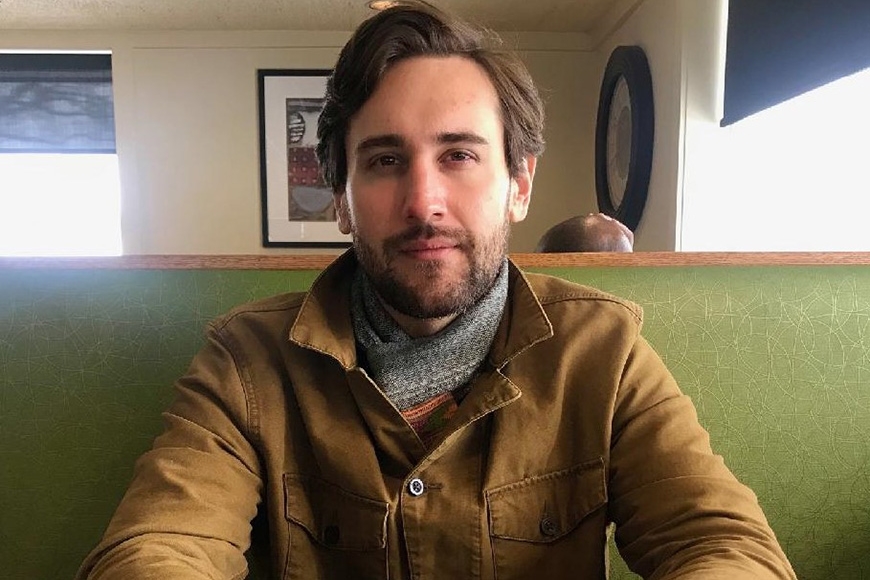Cold War Connections: Grad Student's Interdisciplinary Project
"My project is kind of an oddball one," says PhD candidate Stephen Ellis of his dissertation "Making the Case: Legal Curriculum, Literary Culture, and the Cold War," which won a University-wide Interdisciplinary Doctoral Fellowship for 2020-21 from the Graduate School. Cutting across timelines, disciplines, and issues, the topic arose from his general interest in its components, influenced by classes, seminars, peers and professors. One particular moment stands out: "I was looking at Griswold v. Connecticut, 381 U.S. 479 (1965)," Ellis recalls, "and I noticed that the US Supreme Court was using language to express privacy rights that was almost identical to language used by Confessional poets (e.g. Robert Lowell, Sylvia Plath, Anne Sexton) to describe the 'private life' of the artist. I thought, 'Whoa, what is going on here?'" Ellis also received a Foreign Language and Area Studies (FLAS) Fellowship for summer 2020 to study advanced Russian.
Did certain professors significantly nurture the project?
Tim Brennan and Siobhan Craig shared their academic rigor, their intelligence, and their humor. In Comparative Literature, Keya Ganguly contributed to the conceptual framing of my concerns. In the law school, Barbara Welke and Susanna Blumenthal have been extremely generous with their time and legal expertise. In the History department, Saje Mathieu encouraged me to think about the ways certain transnational processes can only be analyzed effectively through interdisciplinarity. Finally, while not a faculty member, English PhD candidate Moinak Choudhury has offered so much feedback (he even suggested the title of this project). His generosity and thoughtfulness have been a gift. Perhaps his only intellectual weakness is his unwavering support for the Cleveland Browns.
What work are you planning to accomplish on the dissertation during your fellowship year?
This year will mostly be dedicated to writing. Last semester I wrote about 50 pages or so, and right now I’m optimistic about having another 100 pages done by the end of next summer. I would have liked to do some additional research at the Gorky Institute of World Literature in Moscow, Russia, but it looks unlikely that those plans will come to fruition this year.
"Other U departments have been so
welcoming of interdisciplinary work,
... especially to the unique insights
that literature departments can bring
to historical and legal issues."
While the Interdisciplinary Doctoral Fellowship allows a year off from teaching responsibilities, you've taught multiple classes during your studies here. What do you enjoy most about teaching, and how has being a teacher enhanced your scholarship?
Teaching definitely helps to refine your own articulation of textual problems and possible interpretations of those problems. I think that’s probably one of the clearest ways that teaching influences anyone’s research. I’m grateful that so many students here have been smart, attentive readers of the works that I’ve assigned. Hearing their interpretations of different texts offers its own kind of clarity about the issues that most interest me.
What has been your favorite discovery, living here in Minnesota?
I grew up in Southern California, and then I worked in New York for about four years. But when friends visit from the coasts, they always fall in love with Minneapolis. To name a few of my favorite things: great food options, high quality of life, and robust social services.
What have you appreciated most about your studies here at the U?
I appreciate that many departments have been so welcoming of interdisciplinary work, and they have been especially open to the unique insights that literature departments can bring, for example, to historical and legal issues. Also, the office staff members—in the English department, but more widely across the University—have been some of the most competent, efficient, and informative folks that I’ve ever met in an office setting.



